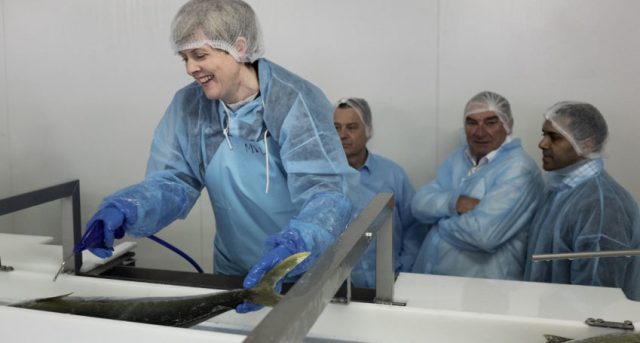Clean Seas Seafood is ramping up production at its new processing plant in Adelaide, Australia and will begin using the new rapid freezing technology in January 2018.
It has also rebranded its fish Spencer Gulf Hiramasa Kingfish to make a stronger provenance connection to the pristine southern Australian waters where the fish are grown.
The company is a full-cycle commercial kingfish producer and breeds, farms and sell Yellowtail Kingfish.
It offers premium sashimi and table fish in Europe, producing more than 2000 mt a year of Spencer Gulf Hiramasa Kingfish from fingerling to 4.5kg.
Yellowtail Kingfish, with its creamy white to pale pink flesh is known for its sashimi qualities but is also gaining traction as a versatile cooked product.
The new processing plant has been increasing output since August 2017 and will be fully operational by early 2018.
It will help reduce costs and give Clean Seas greater control over its supply chain.
Previously its fish were processed under contract in the South Australian regional town of Port Lincoln.
The new liquid nitrogen rapid freezing technology will begin operating in January and is capable of freezing fish in 22 minutes, compared with up to six hours for the company’s existing freezers.
This fast freezing preserves the quality of the fish but reduces the freight cost from about AUD$4 (US$3.06) per kg to less than AUD$1 per kg.
“It’s still very much the early days for this species, it’s not a particularly well-known species around the world but we see prospects both for growth in its traditional form – a large fresh sashimi product – but also in the value added food products as well,” says Head.
“We have ambitions in the next couple of years to expand from just straight processing into value added food production as well.”
“We’re interested in things like smoked kingfish, tartare, pre-sliced, sashimi and possibly ceviche.”










